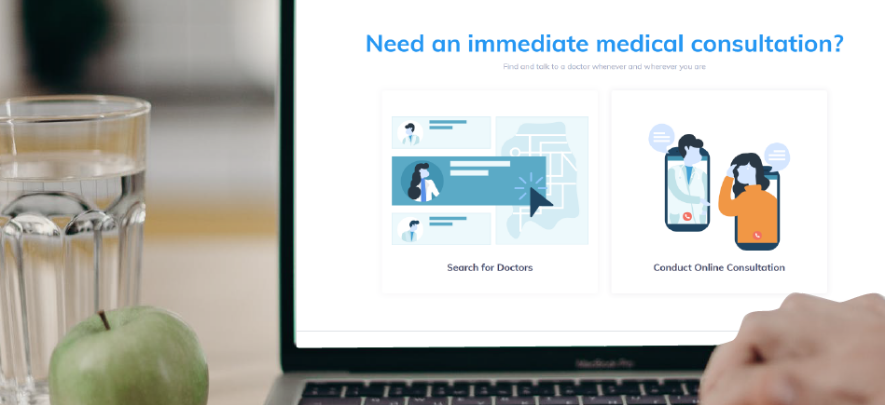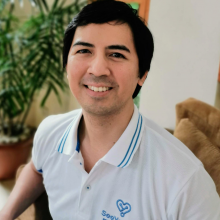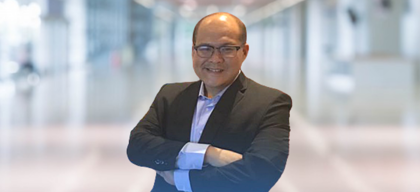Caring For Our Health: What we learned in 2020 amidst the pandemic

Health & Lifestyle
181 week ago — 7 min read
Getting through 2020 was difficult for all of us. With the pandemic happening, different aspects of our life were greatly affected — from our work to the way we cared for our health. But, despite all of these difficulties we faced, we managed to thrive by changing our perspectives and adapting to the situation. As we begin a new, and hopefully, brighter year, let's reflect on some healthcare changes in 2020. What have we learned from all of these? Read on and see how these could shape our health as we walk towards the future.
Small habits go a long way
When COVID-19 first began to spread, we were proactive in minimizing risk of exposure to the virus. Early on, we realized how our tiniest of habits can have big consequences on our community as a whole. As a way to protect ourselves and others, we adopted new practices that are seemingly small when done by ourselves, but largely helpful when done collectively. We’ve become mindful of those we touch: money, doorknobs, and of course, our co-workers, friends, and families too.
Now, before we do anything, we'd think twice, putting hygiene and safety at the forefront. We instantly adapted to wearing masks and face shields, washing our hands properly, and disinfecting with alcohol as often as possible to curb the spread.
We learned to be conscientious and it is through this that we're each able to contribute in the fight against COVID-19. Bringing this careful consideration of our own hygiene practices and awareness of our own impact to our community even beyond the end of the pandemic, we'll be able to live our day-to-day lives in a safer environment.
Public health requires everyone’s help
Of course, we won't win against this disease with the efforts of individuals alone. Luckily, a number of local government units, businesses, establishments, and many more private groups have also done their part to implement health protocols to protect the community.
Public places now having everyone fill out contact tracing forms, requiring swab or rapid tests are just some of the steps they've done to ensure everyone's safety.
On a bigger scale, disinfection is likewise taken more seriously than ever, with restaurants, tourist establishments, and others doubling on their efforts to maintain cleanliness. Installation of air filters, constant sanitation of high-traffic areas and surfaces have become a norm as it should be with or without the occurrence of the pandemic.
This 2020, we learned to invest in efforts to enforce strict safety measures that not only helped ease the worries of the people, but it also helped foster a clean environment that is important for our health.
Our heroes need care too
Because of COVID-19, our healthcare system was greatly affected. Cases continued to rise in the country, hospitals became more and more packed with patients. Hospital overcapacity meant having less space and less equipment to help deal with the disease. Without the proper tools to properly treat the spreading virus and protect themselves, our medical frontliners became more in danger of contracting the virus.
As a result, a harsh reality hit us in the midst of the pandemic: without our health professionals, no one will be there to treat the public. For our modern-day heroes to be able to do their job, they need as much support as they can get. To help out hospitals whose personal protective equipment (PPE) supply had run out, various groups have joined together to donate or even create PPEs, face shields, and face masks.
It was unfortunate that a pandemic needed to happen for us to realize the importance of the medical industry. Moving forward, we learn from the mistakes of the past and hope that our health sector gets the support they need so that they are able to safely fight health crises that come our way well-equipped.
There's a way with tech
With hospitals caring for patients of COVID-19 and other diseases, entering these places of treatment can be risky. Not to mention, with a high number of cases in the country, it's hard to keep track of who has been in contact with the disease, putting not only the patients at risk, but also the doctors giving care.
Thankfully, our local healthcare changes. In 2020, we managed to adapt and rise above the challenges, with health professionals moving online to give their patients the care they need. Through eHealth platforms like SeeYouDoc, patients can now book virtual consultations, seek treatment for minor health issues, and get prescriptions all through the internet. This way, everyone is able to minimize their contact with one another.
Telemedicine’s benefits will remain even after the pandemic ends, especially for patients in remote areas seeking medical care. Acknowledging how technology can help doctors in their practice, medical schools like St. Luke's Medical Center College of Medicine - William H. Quasha Memorial (SLMCCM - WHQM) have also begun incorporating telemedicine into their curriculum. With the further development of technology, health professionals might just be able to help more patients in the coming years.
Innovative healthcare changes in 2020 like the advancement of telemedicine helped us survive in the pandemic.
Prevention is better than cure
Overall, despite our ingenuity and resourcefulness at making ends meet to beat this pandemic, we've realized that above all else, preventive care is better than cure. It’s an old adage, but it’s become even more ingrained in our minds as we witnessed how the pandemic unfolded.
Seeing the case numbers rise up to 475,820 in a span of year from January 3, 2020 to January 2, 2021 is alarming. We’ve now come to really understand that to improve the public’s health, early diagnosis is important. Mass testing would have greatly helped trace the virus and halt its spread.
And with COVID-19 vaccines finally passing tests, we also hope to prevent further casualties with mass vaccinations. Getting vaccinated against viral diseases like COVID-19 can help protect the whole population.
But, as it is, these healthcare changes in 2020 would be nothing if we don’t learn from them and continue to implement them. Should another health crisis unfortunately arise in the future, fingers crossed, we’d easily recover and quickly heal as one.
To explore business opportunities, link with me by clicking on the 'Invite' button on my eBiz Card.
Disclaimer: The views and opinions expressed in this article are those of the author and do not necessarily reflect the views, official policy or position of GlobalLinker
Network with SMEs mentioned in this article
View Noel 's profile
SME Inspirations
Other articles written by Noel Del Castillo
Most read this week















Comments (1)
Please login or Register to join the discussion